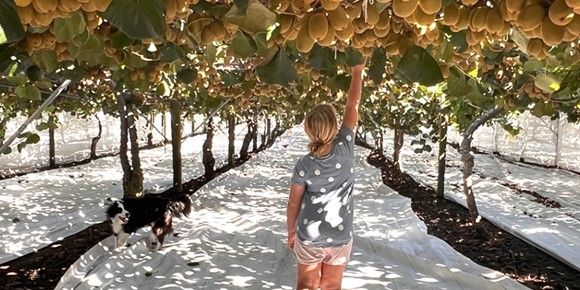Getting Plant Varieties Right

In November 2019, Rural Accountants Director Shannon Harnett was 1 of 5 awarded a prestigious Nuffield Farming Scholarship for 2020. A highly sought-after New Zealand primary industry scholarship, a Nuffield is a global scholarship with results that feed back to the NZ agri-horticulture sector. Although there were set-backs due to the 2020 COVID outbreak, in 2022 the report was finally published in full. Below is an abridged version of Shannon’s executive summary of her research.
“Covid restrictions meant there would be no international travel to study my topic of choice. Luckily New Zealand is a thriving hub for primary industry innovation. My domestic research has been aimed at gaining a deep understanding of plant variety rights (PVR), value creation, and the changing rules of the game.
There are two high profile super stars in the PVR space that I am particularly interested in – Zespri Sun Gold and the Rockit Apple. I draw examples from each throughout the report.
The owner of a PVR has the exclusive right to propagate and sell the fruit, flower, or other products of the variety under PVR, or the duration of the right. For kiwifruit, this timeline can be up to 20-23 years. The PVR owner can issue licence to third parties to grow and sell the product.
[…]
The protection of the Plant Variety Right, the strength of the product and the branding creates value. The key benefit of having the plant variety right is control. The control to structure supply to meet demand, now and into the future.
[…]
New Zealand is currently updating the Plant Variety Rights Act 1987 to bring its standards in line with The International Union for the Protection of New Varieties of Plants (UPOV) 1991 update. It is expected that it will give PVR holders further clarification and ability under the legislation to protect their rights.
[…]
This update to the legislation is an opportunity for New Zealand to become a world leader in PVR legislation. To have fit-for-purpose legislation that incentivises the development of new varieties, and the importation of existing international varieties would create a competitive advantage. We can be world leaders in plant variety innovation, and research and development.
[…]
The tension between science-led and consumer-led research and development is unavoidable. There is a need for both. Successful consumer-led innovation directly produces economic value. Science for the sake of obtaining knowledge leads indirectly to economic, social, and environmental benefits.”
The full executive summary and report - which explores branding and marketing, environment influence and consumer driven change, as well as the topics mentioned in the abridged summary - are available here.